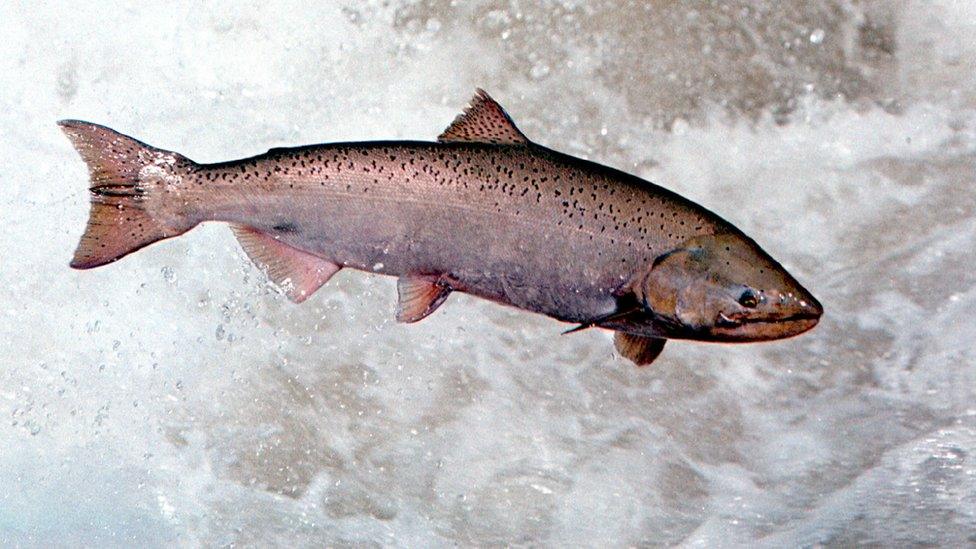Salmon breeding after straightened Cumbria stream rewiggled
- Published
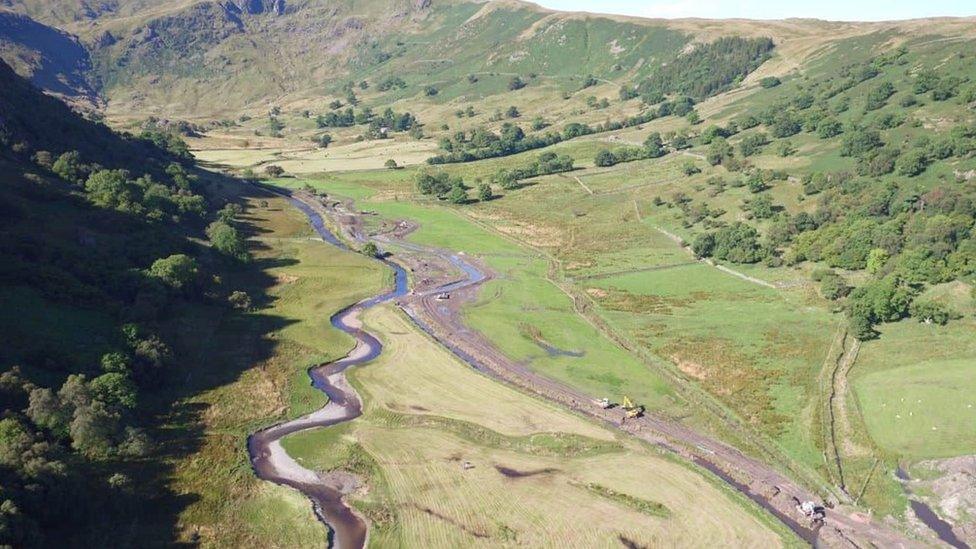
Swindale Beck has been returned to a natural meandering course
Salmon are breeding in a Cumbrian beck after its course was rewiggled.
Swindale Beck on the eastern edge of the Lake District was straightened in the 1800s to increase land for farming.
But it resulted in water moving too quickly, scouring away the gravel banks needed by fish to lay their eggs.
A project started in 2016 between the RSPB and United Utilities to return the Haweswater watercourse to its natural route has seen the return of Atlantic salmon, with 20 recently counted.
Ecologist and RSPB Haweswater senior site manager Lee Schofield said: "To see fish spawning again back in that river where they had previously had no opportunity to do so, in such a short time period, is just hugely inspiring and shows how nature can recover.
"Salmon face so many different threats including a lack of food at sea it makes their migration so much more difficult and, with a lack of spawning habitat in the upper reaches of river catchments, we hope we've addressed one part of that picture."
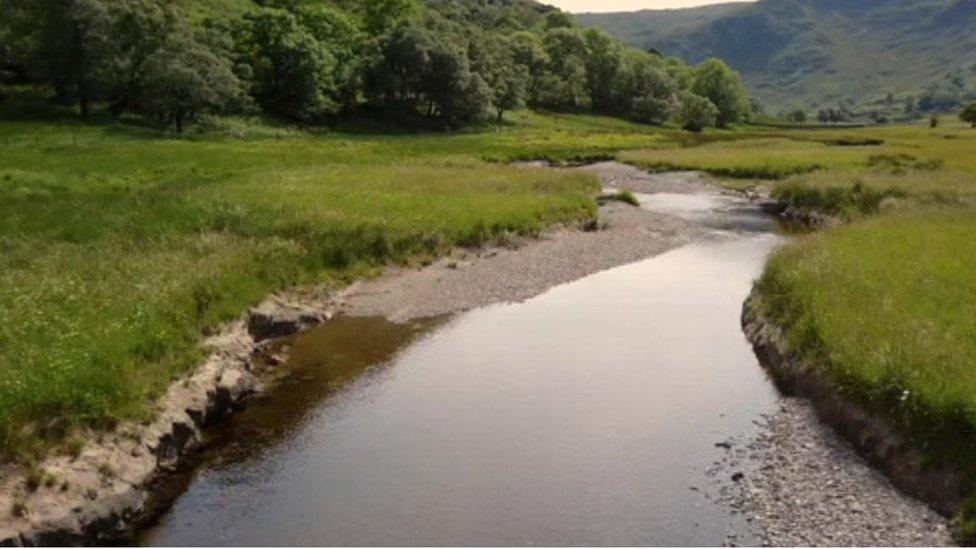
The new route for the beck has slowed down the flow of water creating a natural flood plain
The work carried out by the RSPB, United Utilities, the Environment Agency and Natural England to return it to something like its original, bendy course will also slow the flow of the water to reduce the risk of flooding to people living downstream.
It is also hoped the return of salmon will benefit other wildlife in Haweswater's ecosystem, such as kingfishers, goosanders, otters and foxes.

Follow BBC North East & Cumbria on Twitter, external, Facebook, external and Instagram, external. Send your story ideas to northeastandcumbria@bbc.co.uk, external.
- Published9 January 2023
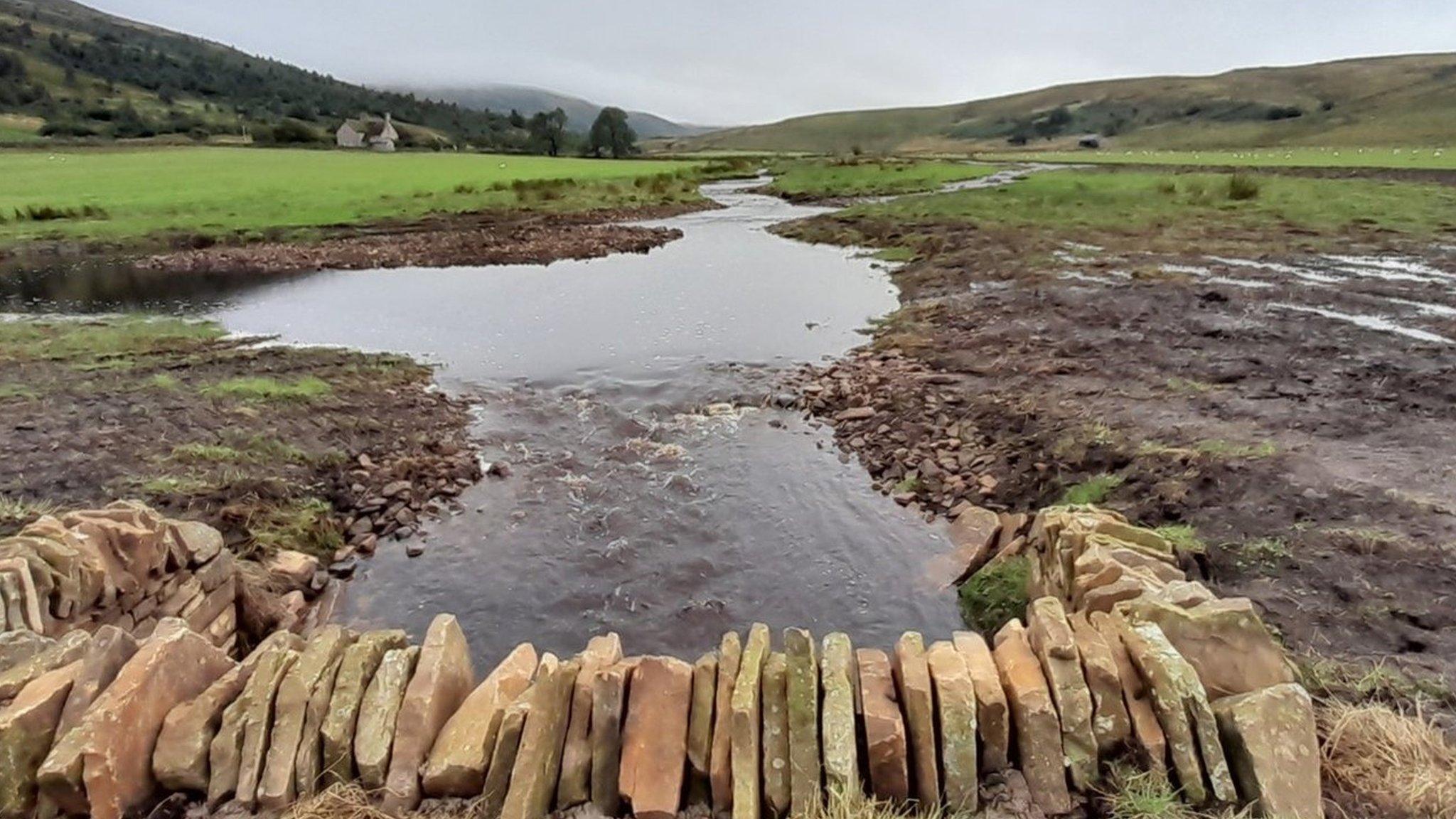
- Published5 January 2022
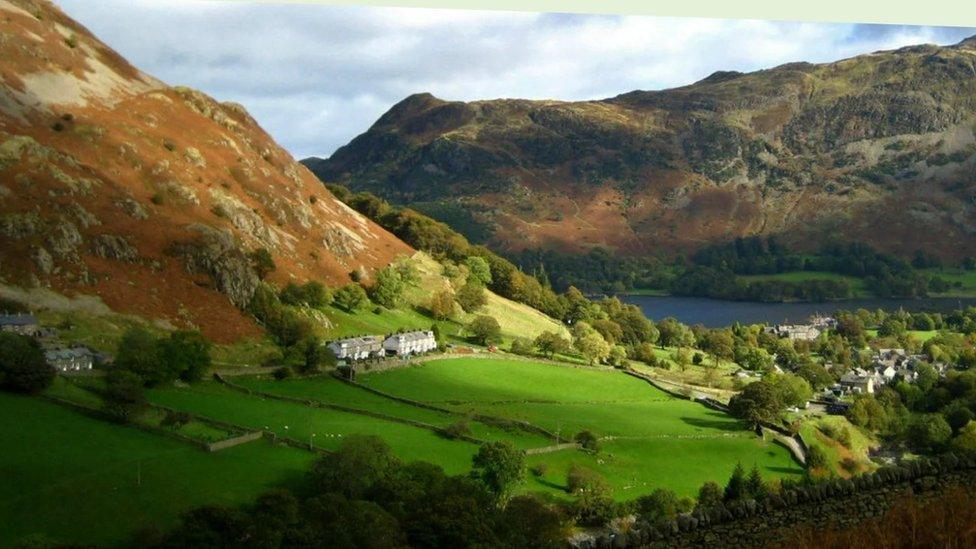
- Published2 May 2021
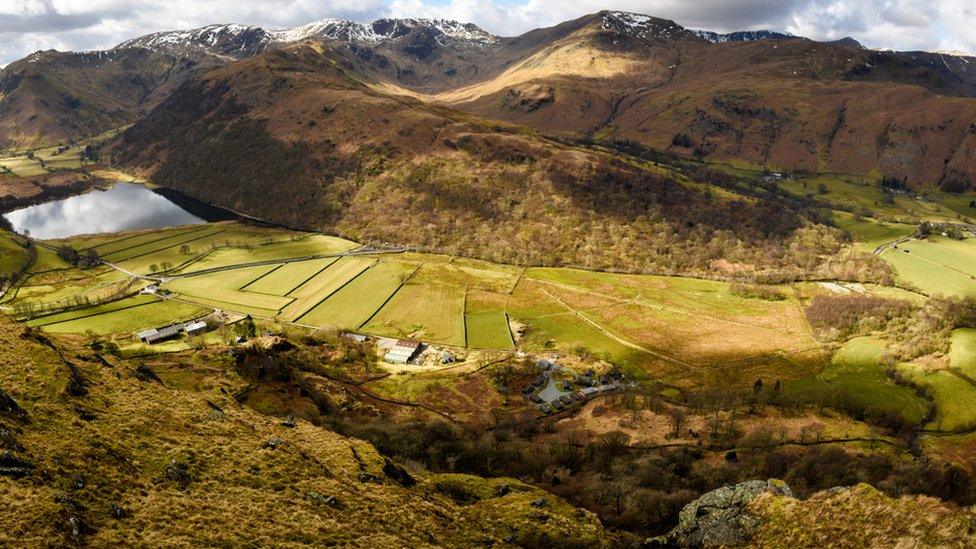
- Published10 April 2016
